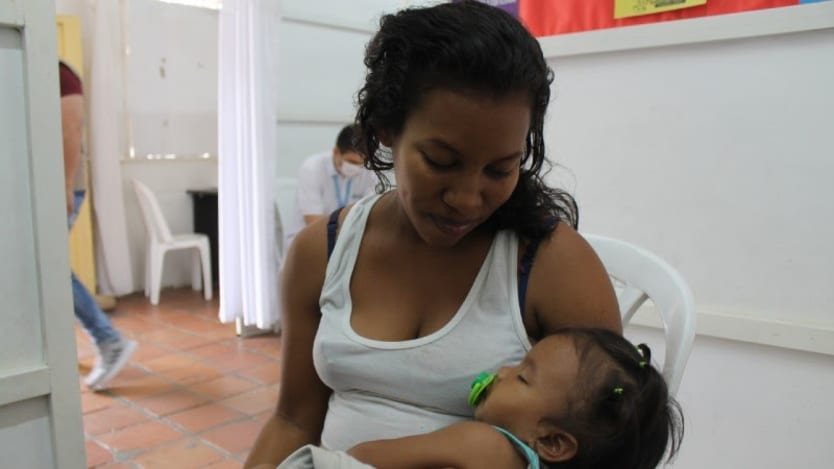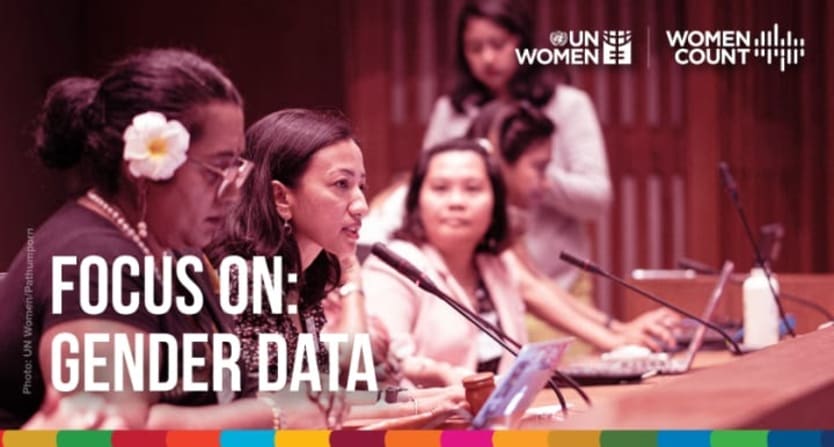
CUCUTA, Colombia — Restrictions aimed at slowing the spread of the novel coronavirus may also delay new efforts to understand challenges faced by women on the border of Colombia and Venezuela.
“The main intention that we have … is that women and girls have a say in the decision-making process over the type of assistance that’s provided to their communities.”
— Marten Mylius, Colombia country representative, CAREInternational humanitarian organization CARE, which just began operating in Colombia last year, planned to work with local organizers and women’s groups to conduct a rapid gender assessment in the coming weeks about the needs of beneficiaries to launch its Women Lead in Emergencies program. While many NGOs are operating in Cúcuta and other areas near the border, CARE wants the data to determine how it can best serve Venezuelan women and girls and Colombian host communities.
COVID-19 — a timeline of the coronavirus outbreak
Follow the latest developments on the new coronavirus that causes COVID-19.
But now, the closure of the border with Venezuela and strict quarantine orders from the Colombian government prevent CARE staff and local organizers from conducting in-person focus groups and interviews as originally planned. While gatherings of more than five people are prohibited, CARE Colombia Country Representative Marten Mylius said some of the work could be conducted via phone.
“The main intention that we have … is that women and girls have a say in the decision-making process over the type of assistance that’s provided to their communities. That’s what the approach is about,” Mylius said, noting that pieces of the assessment that comply with COVID-19 restrictions could move forward.
Staff from other CARE country offices had arrived in Colombia to help conduct the assessment, but they returned home as Colombia escalated its border closures. Just 10 days ago, staff members were participating in a training in Cúcuta to teach local organizers how to conduct a rapid gender assessment and a rapid power assessment, which examines power dynamics in a society.
Ana Lorena Gonzalez, who is leading CARE’s activity in the border department of Norte de Santander, trained 20 people from eight different organizations on how to collect data. Those organizations are then to help CARE implement its programming.
“The objective is to understand what are power dynamics in the communities, with international development organizations, and in everyday life,” Gonzalez said. “[We want] to understand if women are aware of the ways in which they can participate, if they do participate in those spaces, and what are the strategies that will allow them to participate. The rapid gender assessment will allow us to understand this outlook.”
This includes both formal and informal spaces where women exist, Gonzalez said, from the household all the way to the political level. CARE planned to produce a publicly available report based on the information gathered.
“We want this to be a collective project with community and municipal organizations and that it’s not only a product of CARE,” Gonzalez said. “[We want] women participating in its creation.”
Mylius said that although it may not always be the most up to date, a lot of data on Venezuelan refugees and migrants does already exist. Other organizations and the Colombian government have gathered information about the number of pregnant and lactating mothers arriving in the country, the rates of sexual exploitation and human trafficking, and rates of HIV/AIDS.
“I’m not saying we are looking for this information. It’s already there. That we already know. It is a matter of how all this information can be translated into a response that takes those kinds of realities and needs into account,” Mylius said. “The rapid gender analysis is supposed to give you those kinds of angles and specific recommendations as to how that would inform your program in WASH, sexual/reproductive health.”
Mylius said that, even before the threats of COVID-19 became apparent, CARE was cognizant of the challenges to collecting the data it sought. He said the dangers posed to civil society organizers in Colombia was making it difficult to identify groups with which CARE could work to gather its data. Human rights defenders have long been vulnerable in Colombia; in 2019, the number of murdered female activists increased by 50%, according to United Nations figures.
The mobile population of Venezuelan refugees and migrants — known as “caminantes,” meaning “walkers” — also makes it difficult to identify needs.
“The threat is one thing — the second element that we found is about the irregular status of many of them. Even though there are women with leadership ability and capacity and interest, they’re afraid that because they're irregular, they might be deported,” Mylius said.
“That’s why it’s not so easy if you compare with some of the other Women Lead in Emergency approach[es] in other areas, because they found an organized civil society and very active women’s groups you can work with from the beneficiary community. But given that context, it’s not for us so straightforward to apply that approach.”
In the interim, the Colombian government has asked CARE to aid in its response to COVID-19 with the Venezuelan refugee and migrant population. The organization is experienced in emergency humanitarian activities and will be assisting in areas such as WASH, improving shelter conditions, protection, sexual and gender-based violence, and sexual and reproductive health.
“They’re very much afraid that Venezuelans are carriers of the disease, and there’s a completely collapsed health system inside Venezuela, so they want support,” Mylius said. “That’s why we are now going into a little bit of an emergency mode.”
Devex, with support from our partner UN Women, is exploring how data is being used to inform policy and advocacy to advance gender equality. Gender data is crucial to make every woman and girl count. Visit the Focus on: Gender Data page for more. Disclaimer: The views in this article do not necessarily represent the views of UN Women.

Search for articles
Most Read
- 1
- 2
- 3
- 4
- 5


